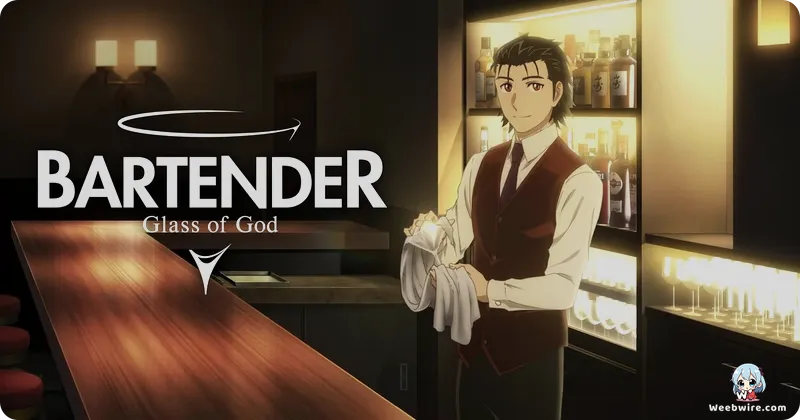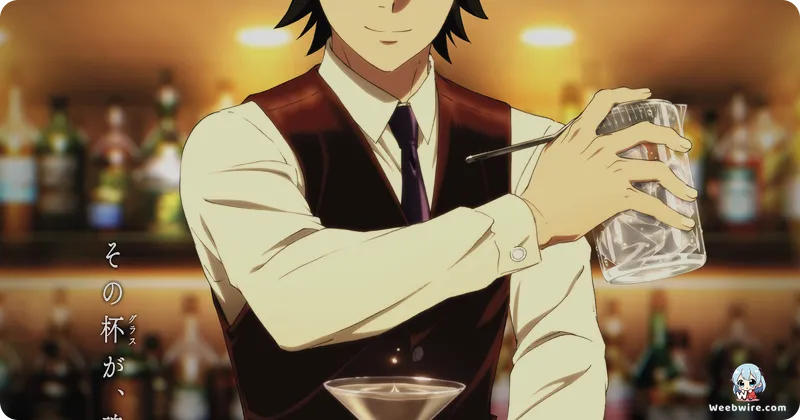Beyond the Shaker: How BARTENDER Glass of God Blends Authentic Mixology with Profound Psychological Drama

While many anime focus on high-octane battle sequences, the sophisticated drama of the 2024 adaptation, BARTENDER Glass of God, unfolds in the dimly lit corners of Ginza's hidden bars. Produced by Studio Liber and based on the celebrated manga by writer Araki Joh and illustrator Kenji Nagatomo, this series is more than a visual feast of exquisitely prepared cocktails. It represents a profound convergence of culinary history, psychological drama, and poignant human connection, establishing its status as a uniquely influential work that transcends typical slice-of-life anime.
Dedication to Authenticity and Mixology
What truly distinguishes BARTENDER is its unprecedented dedication to authenticity and educational rigor. The show operates akin to a refined encyclopedia of mixology, where every drink is real and factually accurate. This commitment to detail covers everything from the historical roots of a Sidecar during World War I to the precise chilling required for a perfect Martini. This intensity is such that the original manga remains a respected reference text among professional Japanese bartenders, validating the extensive research conducted in collaboration with real-world experts.
The narrative uses these authentic drinks not merely as props, but as essential narrative tools, unlocking the deep-seated emotional cores of the troubled patrons who seek solace within Eden Hall.
Ryu Sasakura: The Glass of God
At the heart of this sanctuary is Ryu Sasakura, the protagonist known reverently as the "Glass of God." His remarkable genius lies not in following recipes, but in profound observation and empathy. He possesses an almost mystical ability to diagnose the psychological state of a visitor reading the unseen tensions, the weariness, and the hidden conflicts and translating that emotional landscape into the single, perfect beverage.

The drink served is always a catalyst, forcing patrons toward introspection or revelation, positioning Ryu less as a server and more as a healer or confessor providing emotional sustenance. The location itself, Eden Hall, enhances this mystique; tucked away in the bustling city, it operates without a menu, accessible only to those truly in need, reinforcing the idea of a spiritual or necessary pilgrimage.
The 2024 Adaptation by Studio Liber
The 2024 iteration by Studio Liber brings a fresh, contemporary aesthetic to the property, diverging stylistically from the 2006 adaptation. The focus is keenly placed on sensory immersion, utilizing meticulous lighting and sound design. The distinct clink of ice, the precise pour, and the condensation on the glass create an intimate, almost ASMR-like ambiance.
This technical fidelity required the animation team to study top mixologists extensively, ensuring Sasakura’s every movement, from shaker technique to garnishing, meets world-class standards. This blend of technical accuracy, philosophical depth regarding the subjective nature of the "perfect drink," and compelling human drama ensures that BARTENDER Glass of God remains a masterpiece that resonates deeply with audiences long after the last drop is served.
Credits
BARTENDER Glass of God
Author
Araki Joh
Cover Art
Kenji Nagatomo
Studio
Liber
Publisher
Shueisha
Producers





